Search
Search Results
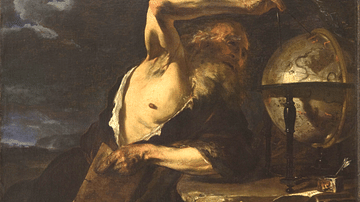
Definition
Anaxagoras
Anaxagoras (l. c. 500-c. 428 BCE) was a Pre-Socratic Greek philosopher who claimed the First Cause of existence was Mind (nous) and all things were constituted of indestructible “seeds” (or “stuff”), originally a single mass, separated and...
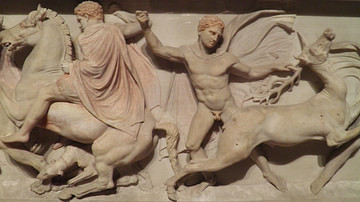
Definition
Argead Dynasty
The Argead dynasty, the ancient Macedonian house of Dorian Greek origin, lasted from the 7th century to 310 BCE. The mythological founder of the dynasty was King Caranus but it was under Philip II of Macedon (382-226 BCE) that the Macedonian...
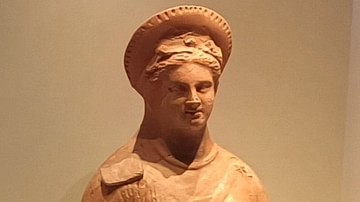
Image
Terracotta Bust of a Macedonian Goddess or Princess from Pella
Terracotta bust of a Macedonian goddess or princess from Pella, found in the Agora, dating from the 4th century BCE. Archaeological Museum of Pella. In stark contrast to the limited view of women offered in ancient writings about Macedonia...
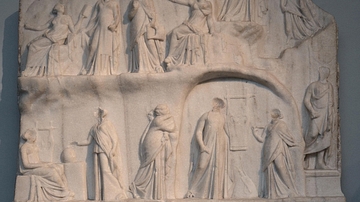
Image
The Apotheosis of Homer
Marble relief depicting the Apotheosis (elevation to divine status) of the poet Homer with Zeus, Apollo and the Muses, signed by the sculptor Archelaus of Priene, ca. 225-205 BCE, found in Italy but thought to have been sculpted in Egypt...

Definition
Pre-Socratic Philosophers
The Pre-Socratic Philosophers are defined as the Greek thinkers who developed independent and original schools of thought from the time of Thales of Miletus (l. c. 585 BCE) to that of Socrates of Athens (470/469-399 BCE). They are known as...
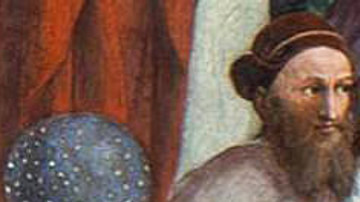
Definition
Hipparchus of Nicea
Hipparchus of Nicea (l. c. 190 - c. 120 BCE) was a Greek astronomer, geographer, and mathematician regarded as the greatest astronomer of antiquity and one of the greatest of all time. He is best known for his discovery of the precession...
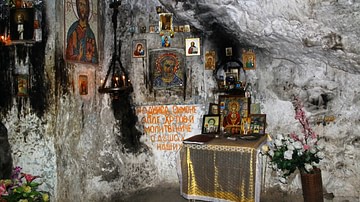
Definition
Zealots
The Zealots were a group of Jews who began to emerge as a religious/political movement around the beginning of the 1st century CE. They strongly opposed Roman rule and turned on everyone, including other Jews, who cooperated with Rome. A...
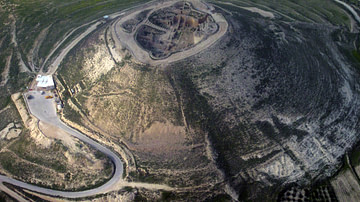
Definition
Herod the Great
Herod I, or Herod the Great (c. 75 – 4 BCE), was the king of Judea who ruled as a client of Rome. He has gained lasting infamy as the 'slaughterer of the innocents' as recounted in the New Testament's book of Mathew. Herod was, though, a...

Definition
Delos
Delos is a Greek island in the Cyclades archipelago which was both an influential political force and, with its sanctuary to the god Apollo, an important religious centre in the Archaic and Classical periods. The island was also a major commercial...
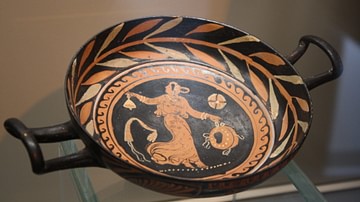
Definition
Bacchae
The Bacchae is a Greek tragedy written by the playwright Euripides (c. 484-406 BCE) in 407 BCE, which portrays Pentheus as an impious king, for the ruler of Thebes has denied the worship of Dionysus within his city walls. For Pentheus, the...